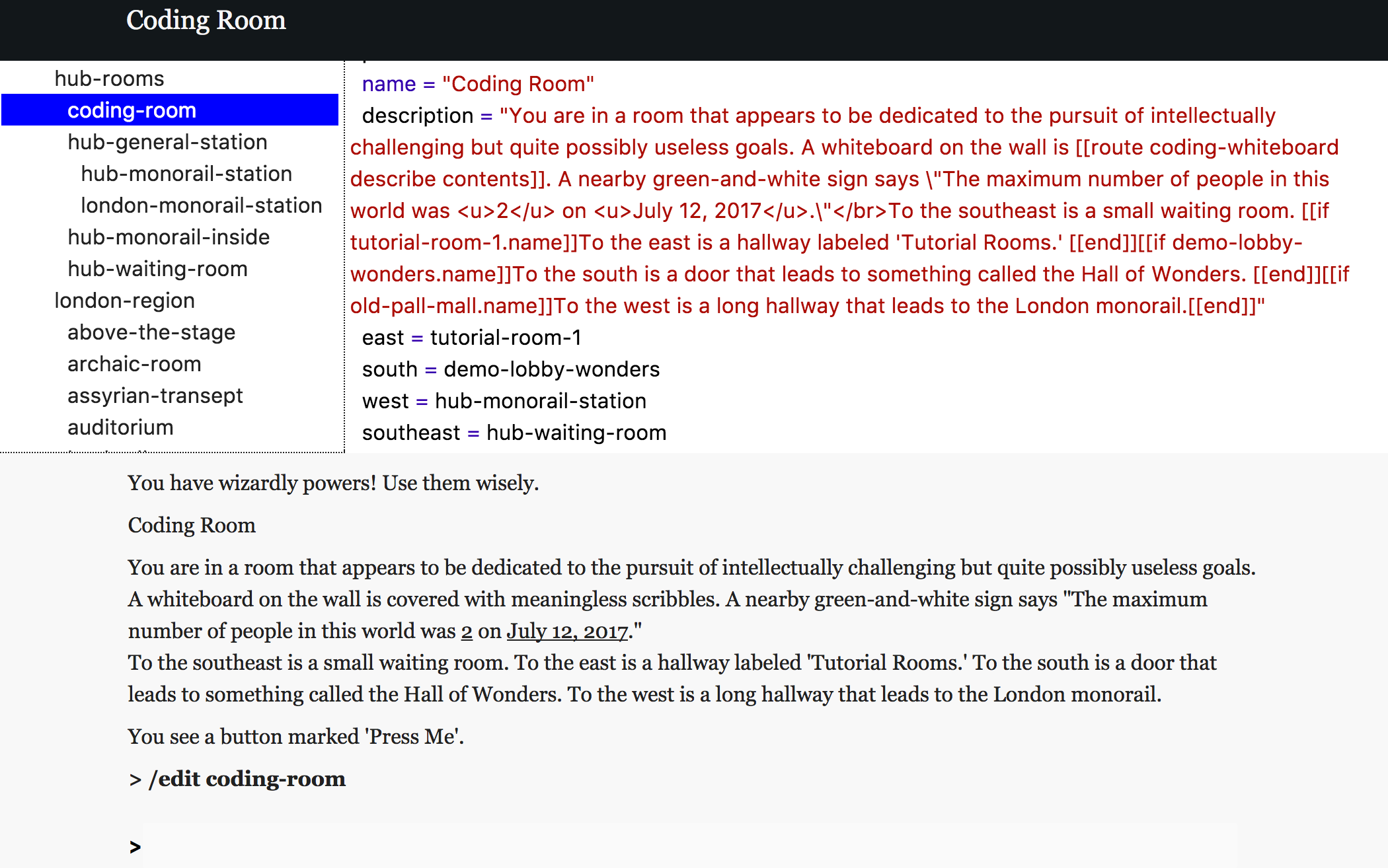Brool brool (n.) : a low roar; a deep murmur or humming
Rule-Based Interactive Fiction Revisited / IFCOMP 2017
Follow up, kind of, to this article.
I’ve decided to compete in IFCOMP 2017. I’ve had an idea for a cool scenario kicking around in the back of my head in forever – nothing more than a vague idea flitting around in the closets of my mind, but still interesting – and I decided to finally just bite the bullet and try and get the entry in this year.
I have until September 28th to complete everything, which is looking dicey already, and will probably only monotonically increase in uncertainty as the date approaches.
Admittedly, it is looking dicier because I decided – rather than using the perfectly respectable and capable and battle-tested Inform 7 or TADS 3, I’ve decided instead to just go ahead and do my own interactive fiction system. Yes, this is kind of completely bonkers, and wouldn’t be acceptable in any business situation, but passion projects follow their own calculus.
In implementing it, it is apparent just how much modern systems manage for the user – parsing, ambiguity resolution, the object tree, handling the different legality scenarios with regards to visibility and reachability and whatnot, and it is somewhat a pain in the ass to implement all this stuff, but it is all functionality that is expected in a modern text adventure. Yes, “modern text adventure” seems oxymoronic to me as well There aren’t many advantages to doing my system, especially at the same time as doing the adventure itself, but at least I get a LISPy REPL out of it, so I call it a win.
The question is, did I decide to be exciting and novel and go with a rule-based system or instead cheap it out? Eventually I decided to go with a conventional object oriented system, for a number of reasons:
- the entire adventure world is based on objects, so objects seems a natural fit
- it seemed tricky to allow easy visualization of the entire ruleset in a way that fostered easy interactive development. Rule-based systems lend themselves to one monolithic text file but it’s harder to imagine incremental development on them.
- large monolithic rulesets seemed a little tricker to optimize – message routing is self-constraining on object systems
- Finally, and the big one: a rule-based system, really, is a special case of an object-oriented system: you just put all the relevant rules in one object, and run it from there.
Implementation Notes
I’ve been using Clojure for this project (on v1.9 alpha for the spec stuff, actually), and it’s been a joy and a pleasure – the Emacs + CIDER combination is rock solid, all the potential libraries that I need are there, and moving over to ClojureScript for the version that runs in the browser was straightforward, thanks to Figwheel. The internal language is a pattern-based maybe-monadic languge that works okayish, but, as mentioned above, the big advantage is that it’s all interactive, no compile steps needed, so it’s comfortable – tweak and go.

Discussion
Comments are moderated whenever I remember that I have a blog.
There are no comments on this article.